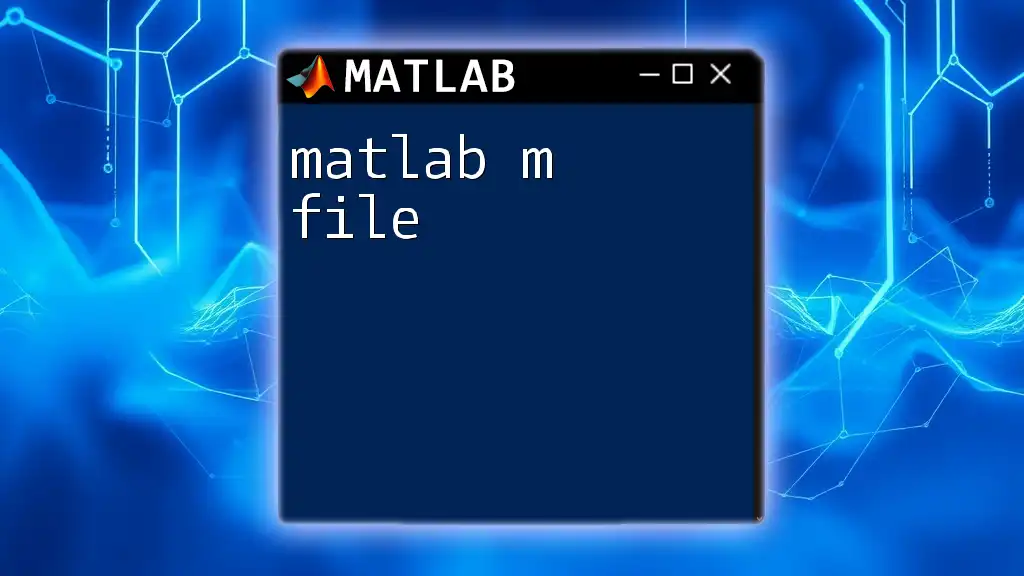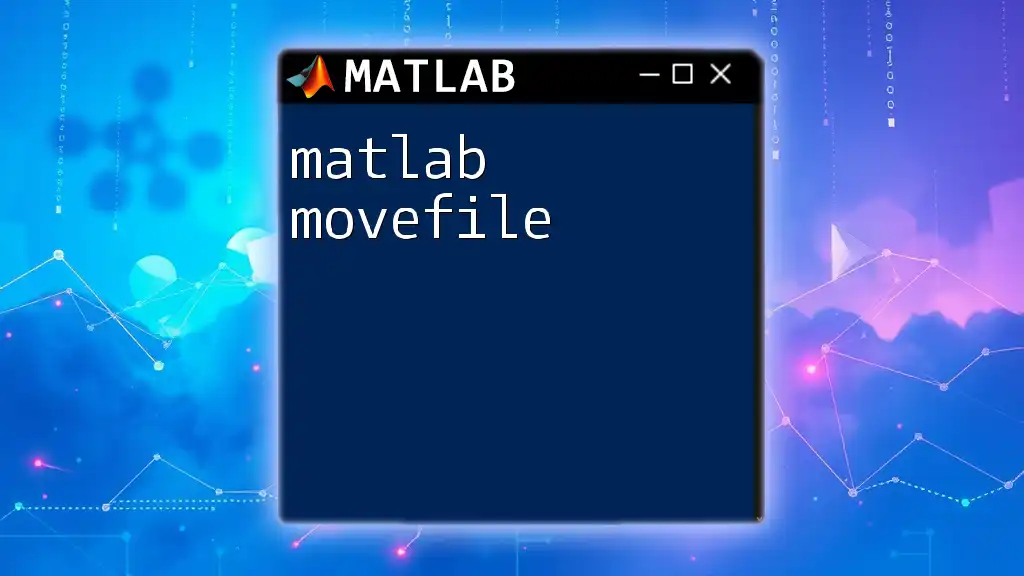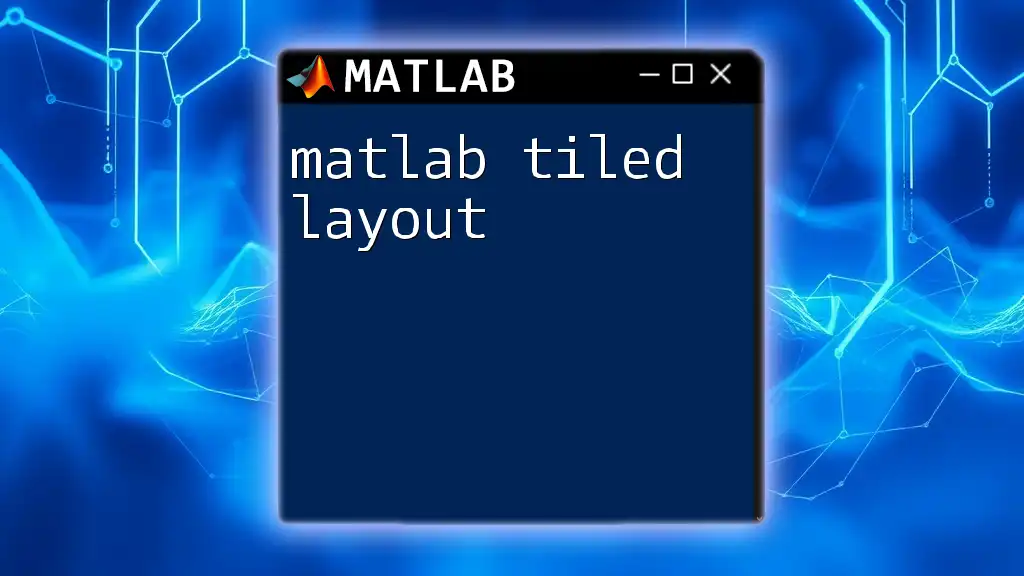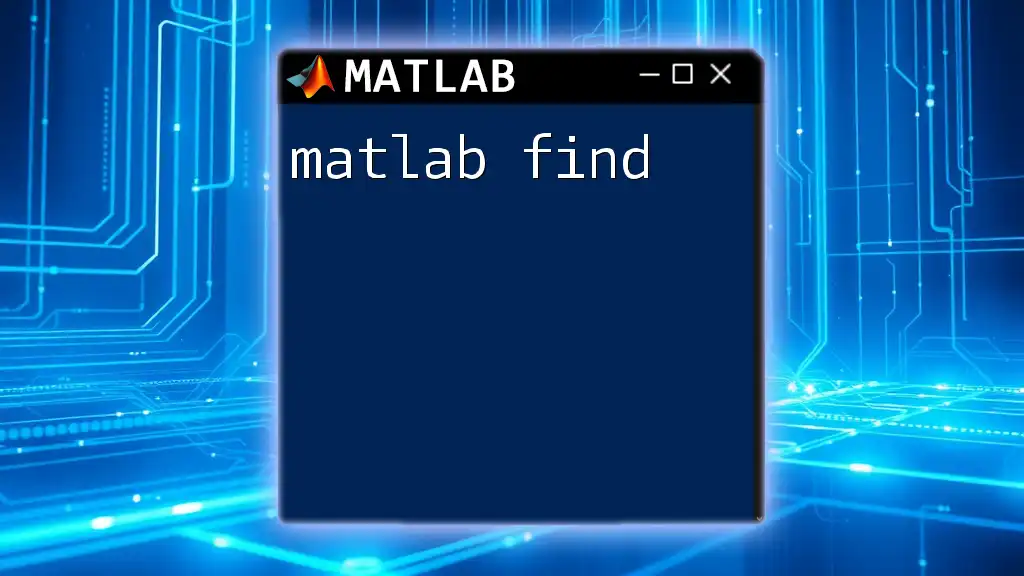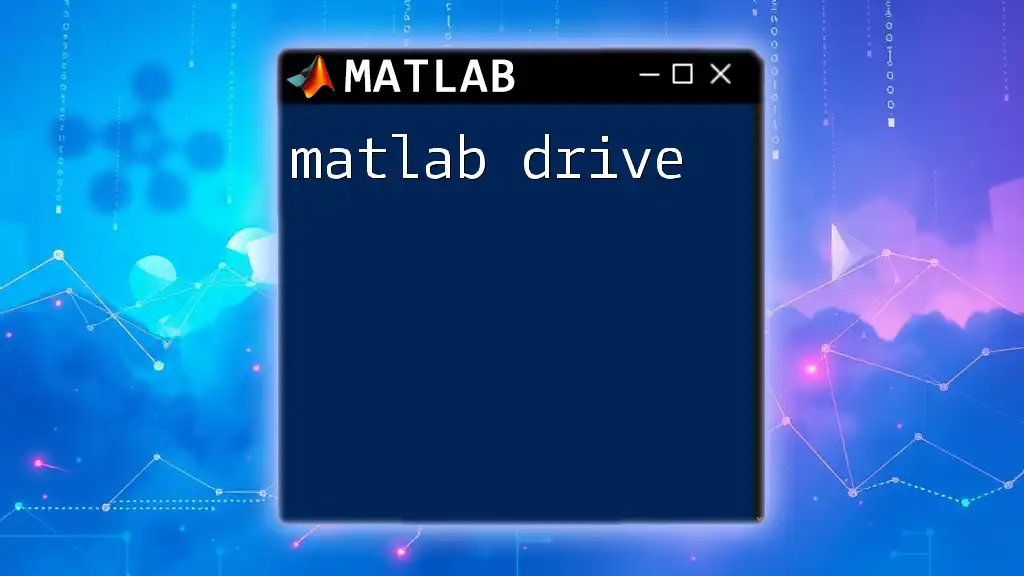An M-file in MATLAB is a script or function stored in a plain text file with a `.m` extension, allowing users to execute a series of commands together.
Here's an example of a simple MATLAB M-file script that calculates the square of numbers from 1 to 10:
% square_numbers.m
for i = 1:10
fprintf('The square of %d is %d\n', i, i^2);
end
What is an M-File?
A MATLAB M-File is a simple text file that contains a sequence of MATLAB commands, which can be run as a program or script. The primary purpose of M-Files is to automate repetitive tasks, enhance productivity, and manage complex calculations efficiently. In MATLAB, M-Files are the backbone of coding, allowing users to encapsulate their functionalities for easy reuse and sharing.
Types of M-Files
M-Files can broadly be categorized into two types:
1. Script M-Files: These files contain a series of MATLAB commands that run sequentially. Scripts do not accept input arguments or return output arguments.
2. Function M-Files: These files define functions that can accept input arguments and produce output. Functions help in modular programming, allowing more complex operations to be broken down into simpler parts.

Setting Up Your MATLAB Environment
Installing MATLAB
To start using M-Files, you need to have MATLAB installed. Follow the installation process outlined on the [MathWorks website](https://www.mathworks.com/downloads/).
Navigating the MATLAB Interface
Once you have MATLAB installed, familiarize yourself with the interface. The main components you'll work with include:
- Command Window: Where you can interactively type commands.
- Editor: A space for crafting M-Files.
- Workspace: Displays variables created in the current session.
Creating Your First M-File
To create your first M-File, open the Editor, type your MATLAB commands, and save the file with a `.m` extension, for instance, `first_script.m`.
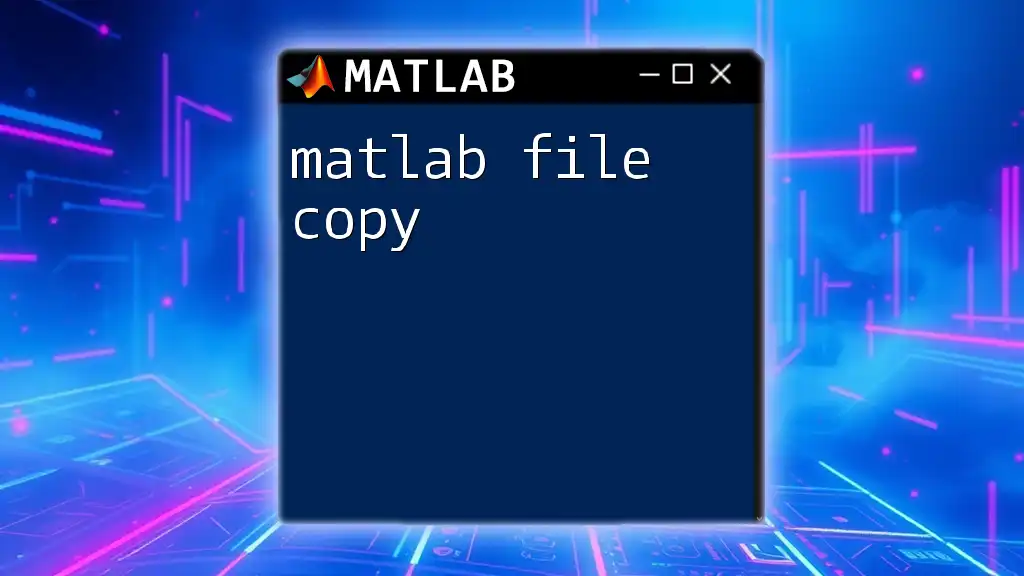
Creating Script M-Files
What is a Script M-File?
A script M-File is a straightforward way to group multiple MATLAB commands. They execute the commands in the order they are written, without any arguments or return values.
Basic Syntax and Structure of a Script M-File
The structure of a script M-File is quite simple. Here's an example of a basic script that displays a message:
% Example Script: hello.m
disp('Hello, World!');
Running a Script M-File
To run your script M-File, simply type the name of the script in the Command Window (without the `.m` extension) and press Enter. For example:
hello
This will execute the commands written in `hello.m`.
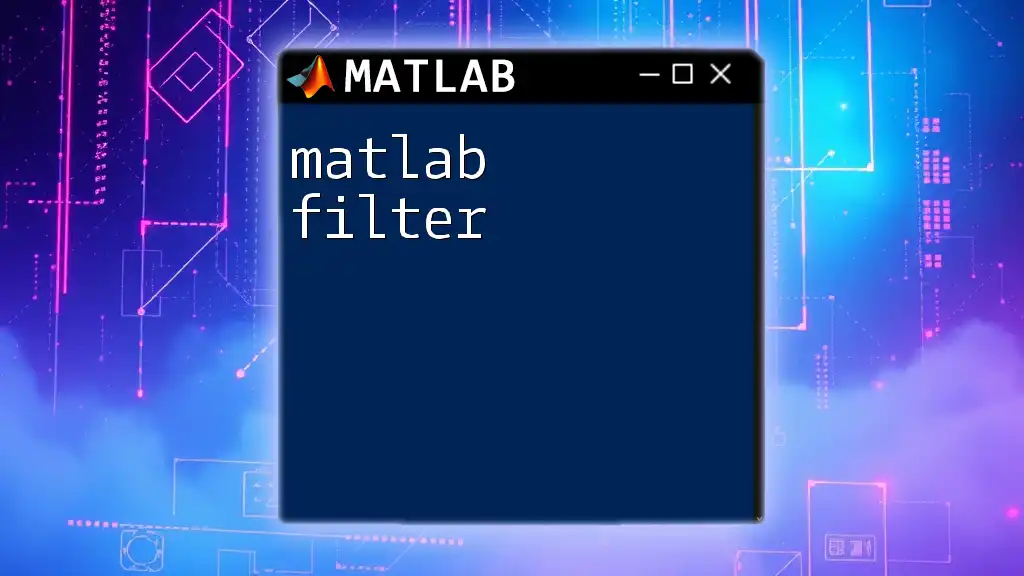
Creating Function M-Files
What is a Function M-File?
Function M-Files not only encapsulate code but also allow you to define inputs and outputs, offering greater flexibility and enabling code reuse.
Basic Syntax and Structure of a Function M-File
The structure of a function M-File begins with the `function` keyword, followed by output arguments, the function name, and input arguments. Consider this example of a simple function:
function y = square(x)
y = x^2;
end
Passing Arguments in Functions
When creating functions, you can easily pass multiple arguments. For instance, a function that adds two numbers looks like this:
function z = add(a, b)
z = a + b;
end
You can call this function by providing values for `a` and `b`:
result = add(3, 5);

Key Features of M-Files
Comments and Documentation
Effective documentation and commenting are crucial for large projects. By inserting comments, you can explain your logic and make your M-Files more readable. Use the percent sign `%` to start a comment:
% This function calculates the square of a number
function y = square(x)
y = x^2;
end
Using `help` and `doc` Commands
MATLAB provides built-in documentation to help you understand functions better. Utilize the `help` command to get a brief explanation of a function, or use `doc` for a more detailed overview. For example:
help add
Variable Scope and Lifetime
Understanding variable scope is important for avoiding conflicts. Local variables are those defined within functions and are not accessible outside. Conversely, global variables can be shared across multiple M-Files. Use `global` to declare them, but be cautious, as they can lead to unintended modifications.

Debugging M-Files
Common Errors in M-Files
While writing M-Files, you may encounter various errors:
- Syntax Errors: These occur when your code does not follow MATLAB's grammar rules. For example, forgetting to close parentheses will throw a syntax error.
- Runtime Errors: These happen when there's an issue during execution, such as attempting to divide by zero.
Using MATLAB Debugging Tools
MATLAB offers valuable debugging tools. You can set breakpoints in the Editor and step through your code line by line. This allows you to inspect variable values and flow, making it easier to identify issues.
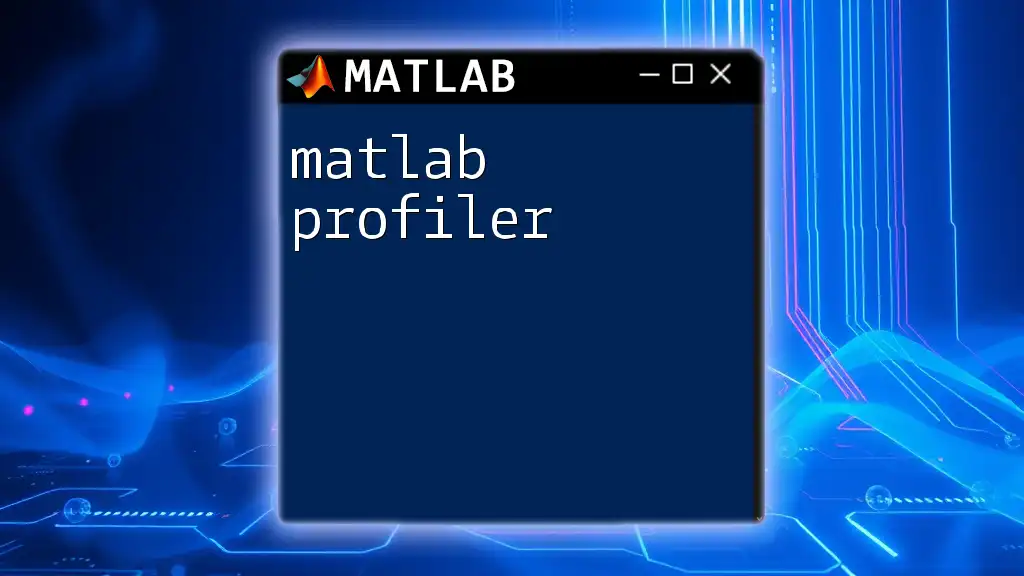
Best Practices for Writing M-Files
Naming Conventions
Use descriptive and meaningful names for your M-Files to enhance readability. Avoid overly abbreviated names. For instance, instead of naming a file `f1.m`, opt for `calculate_average.m`.
Organizing Code for Clarity
Employ clear structure by utilizing sections within your M-Files. Use the `%%` command to create sections that group related lines of code.
Version Control for M-Files
Implementing version control, such as with Git, can help track changes in your M-Files over time. This is especially useful for collaboration and managing complex projects.

Practical Examples of M-Files
Example 1: Data Analysis Script
Here’s a simple data analysis task using a script M-File. The following example generates random data, calculates its mean, and displays the result:
% Data Analysis Script: analyze_data.m
data = randn(100, 1); % Generate random data
mean_data = mean(data);
disp(['Mean: ', num2str(mean_data)]);
Example 2: Custom Function for Calculations
Creating a custom function like a factorial calculator can illustrate the power of function M-Files:
function result = factorial(n)
if n == 0
result = 1;
else
result = n * factorial(n - 1);
end
end
You can call this function to compute factorials, such as:
fact_5 = factorial(5);

Conclusion
In summary, understanding the concept of a MATLAB M-File is essential for any MATLAB programmer, whether you’re developing simple scripts or complex functions. M-Files enhance your productivity while ensuring your code is organized and modular.

Additional Resources
- Consider exploring practical examples of M-Files available online.
- Utilize MATLAB's comprehensive documentation for deeper insights.
- Engage with online communities and forums where MATLAB users share their expertise.
With these tools and understanding, you are well-equipped to begin exploring the robust world of MATLAB M-Files and elevate your programming skills!

